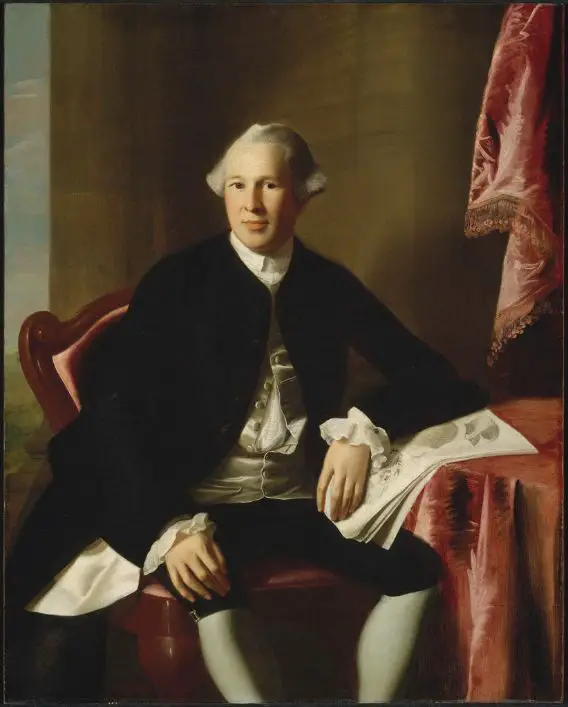Joseph Warren
Joseph Warren was a patriot hero that fought and died at the Battle of Bunker Hill. His primary profession was a physician, but he became an activist for the cause of freedom early in life.
Warren participated contributed in many ways to moving towards independence from the British Crown. Joseph Warren became the symbol of the hero, and many stories and books were written about him.

Where did they live?
Born in 1741 in Roxbury, Massachusetts, Joseph Warren’s parents were both physicians. He went to Harvard and then studied to become a physician. Warren married Elizabeth Hooten, who had inherited quite a fortune.
When the British passed the Townshend Acts, it levied heavy taxes on many of the things the colonists used as well as removed some of their freedoms. It was at this time in 1767 that Dr. Warren became interested in being part of the radical causes to fight against the oppression of the British.
Facts about Joseph Warren
- Warren wrote anti-British articles under the pseudonym “A True Patriot,” and they made the royal governor so mad that he tried to charge the publishers and Warren with libel. Thankfully, the grand jury wouldn’t allow it.
- The writing was just the beginning as Warren became involved in more radical groups. He was friends with Samuel Adams and had connections with Paul Revere. He became involved with other separatists, and after 1770, the “Boston Massacre” went on to be chairman of the Committee of Safety.
- He was involved in getting arms, powder, and raising militias to fight against the British and found out later that the British Crown had a price on his head as well as that of John Hancock and Samuel Adams.
- Warren was the one that gave Paul Revere and William Dawes the orders in 1775 to warn that the British soldiers were on their way to Lexington, Massachusetts.
- When Warren heard about the battle at Lexington and Concord, he left his practice and go to the center of the fighting. He devoted six weeks to helping to prepare the militia fighter s for the battle ahead. He was then elected by the Provincial Congress as the second general in command of the Massachusetts forces.
- Warren learned that the British forces had landed at Charlestown, and he headed to Breed’s Hill, and, refusing to be in command, he volunteered as a regular member of the militia. It was the third and last assault by the British that Warren was killed by a shot between the eyes. When he was killed, he was trying to rally the volunteer militia, who were just regular people that wanted freedom.
- Warren became the symbol of the hero of the revolution. He has been honored with the painting by John Trumbull, “The Death of General Warren,” as well as a Bunker Hill Monument. Almost every state in the New England area of the U.S. has a town in his name.
- Warren’s wife had died in 1773, and when he died, he left four small orphaned children. It was Benedict Arnold that helped the children out with their education by giving them $500 and then petitioned Congress for half-pay of the major general to take care of them until they were older.
What did you learn?
What British bill made Joseph Warren become a political activist?
The Townshend Act
What was the first thing that Joseph Warren did to object to the British?
Wrote articles in a publication
As Warren continued to participate as a separatist, what other actions did he do to help the cause?
Involved in getting arms, powder, and raising militias to fight against the British
How did the British Crown try to punish Warren, John Hancock, and Samuel Adams?
They put a price on their heads
What was the first real battle that Warren joined?
Lexington and Concord
What battle did Warren join where he was eventually killed?
Breed’s Hill



